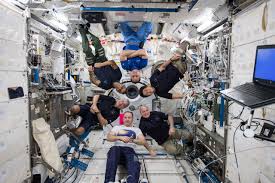
For astronauts, a trip to space isn’t just about rockets, experiments, or breathtaking views of Earth. It’s also about one of the most basic human needs: sleep. But falling asleep in space isn’t as simple as curling up in bed. With no natural day-night cycle, zero gravity, and constant background noise from spacecraft systems, astronauts often struggle to rest properly. That’s why scientists are taking sleep in space very seriously—because good sleep isn’t just comfort, it’s survival.
1. Why Sleep Is So Important in Space
Sleep is vital for maintaining:
- Cognitive performance – Astronauts need to make quick, accurate decisions in high-pressure environments.
- Physical health – Sleep regulates immunity, muscle repair, and overall energy levels.
- Emotional stability – Poor sleep can increase stress, anxiety, and irritability, which could put missions at risk.
On Earth, even one bad night of sleep makes us feel off. In space, that effect is amplified and could compromise entire missions.
2. The Challenges of Sleeping Beyond Earth
Astronauts face unique obstacles when it comes to rest:
- No Gravity: Without gravity, you can’t “lie down.” Astronauts float in sleeping bags attached to walls or ceilings.
- Constant Light & Darkness: On the International Space Station (ISS), astronauts experience 16 sunrises and sunsets every 24 hours, confusing the body’s natural circadian rhythm.
- Noise Pollution: Spacecraft hum with machinery—ventilation systems, pumps, and computers—making it hard to sleep.
- Stress & Workload: The mental pressure of being in space often leads to insomnia.
3. How Scientists Are Studying Space Sleep
Researchers are using several methods to understand and improve sleep in orbit:
- Wearable Sleep Trackers: Astronauts wear devices that monitor movement, heart rate, and brain activity during rest.
- Light Therapy: Special lamps simulate natural sunlight to help regulate circadian rhythms.
- Sleeping Pods: New private “bedrooms” on the ISS give astronauts personal space and noise reduction.
- Pharmacological Studies: Scientists examine how sleep medications work differently in microgravity.
4. Why This Research Matters for Earth
Surprisingly, studying sleep in space also benefits people back home:
- Shift Workers: Insights help improve sleep schedules for nurses, pilots, and night-shift workers.
- Sleep Disorders: Research contributes to treatments for insomnia, sleep apnea, and circadian rhythm problems.
- Mental Health: Understanding stress-related insomnia in space can lead to better stress management on Earth.
5. The Future of Sleep in Deep Space Missions
As humanity prepares for missions to Mars and beyond, sleep becomes even more critical. These trips could last years, and chronic sleep problems would be disastrous. Future innovations may include:
- AI-optimized sleep cycles tailored to each astronaut.
- Soundproof sleeping chambers to minimize noise.
- Virtual reality relaxation tools to simulate Earth-like environments before bed.
Final Thoughts
Sleep might not sound as exciting as rockets or spacewalks, but it’s just as important. By studying how astronauts rest in orbit, scientists are ensuring that future explorers will stay healthy, focused, and ready for the challenges of deep space.